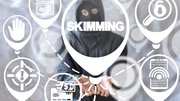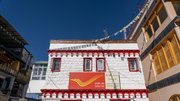News
Diebold plans direct entry into Indian ATM market
Diebold's plans to create a new subsidiary to build its business in India has met with resistance from its own joint venture partner in the country. Government approval is uncertain as well.
September 19, 2002
MUMBAI, India -- Diebold Inc. has announced plans to enter the Indian ATM market directly, rather than through its 10-year-old joint venture with the Chennai-headquartered HMA Group.
Diebold, a global manufacturer with operations in 70 countries and $1.7 billion in annual revenue, came to India in 1992 when it set up Diebold HMA. That joint venture has a market share of about 50 percent.
The company's main rival, NCR Corp., through its NCR Corporation India Pvt. Ltd. subsidiary, has a similar presence in India. Last spring NCR opened an ATM management center in Mumbai, which can manage more than 6,000 ATMs. The Dayton, Ohio-based manufacturer reportedly plans to open a manufacturing facility in India by year's end.
Recently, Diebold floated its own wholly owned subsidiary, Diebold India. It applied to the Foreign Investment Promotion Board (FIPB) for commencing activities in the information technology (IT) sector, with headquarters preferably located in Mumbai.
"We want to set up a global software development center," said Michael Hillock, Diebold's international president, during a recent visit to India. "At the same time, we would like to explore the possibility of developing India as a base for manufacturing ATMs to supply and support the South Asian market."
"We have had a generally happy relationship with Diebold over more than a decade since the joint venture was set up in 1992, but we are not happy about this." |
Hillock stressed India's high level of literacy, its status as a global player in IT, and projections for increased ATM usage.
"The actual level and speed of deployment will depend on a number of factors, including the growth of the Indian and global economies," he said. "The capital spending plans of financial institutions will also affect the speed of deployment."
Diebold's application for a 100-percent-owned subsidiary, which has been pending with the FIPB since July, is faced with two critical hurdles.
First, while the U.S. company has mentioned activities in information technology in its application, ATMs are generally classified under the "automation equipment" category. Its object clause is thus seen to be identical to that of its existing joint venture.
In fact, a similar case came up before the FIPB in November 2001, when the Modi group objected to Walt Disney Television's proposal to invest in the latter's subsidiary. FIPB cleared the Disney application to invest, but did not permit its subsidiary to undertake activities which were already being undertaken by the joint venture firm.
Secondly, Diebold must obtain a "no objection certificate" from its partner, the HMA Group. Existing rules require any foreign company with a joint venture in India to obtain a clearance from its local partner if it wishes to set up a business in the same or related areas.
That certificate may not be forthcoming, based on the reaction of Harish Murthi, managing director of Diebold HMA, the Indian joint venture.
"We are not at all happy with the idea of Diebold opening up a 100 percent owned subsidiary when there is an existing joint venture," said Murthi, founder and chairman of the Chennai-headquartered HMA Group, which focuses on the retail banking automation sector in India and abroad.
"We have filed a case with the FIPB, and raised objections that our equity will stand diluted in the long run. We have had a generally happy relationship with Diebold over more than a decade since the joint venture was set up in 1992, but we are not happy about this."
Murthi claimed that Diebold HMA currently has on its payroll more than 250 people, whose future would be jeopardized by the establishment of the American subsidiary.
Diebold HMA has 71 customers, along with the largest service infrastructure in India, with 67 locations to support. It has installed or acquired orders for more than 4,000 machines. Among the company's prominent customers are State Bank of India, ICICI Bank, HDFC Bank, Corporation Bank, UTI Bank, Canara Bank, Global Trust Bank, Indian Bank, IndusInd Bank, ABN Amro Bank, Federal Bank and South Indian Bank.
"We have worked very hard to develop the ATM market in India, right through the 1990s," Murthi said. "Now, when the ATM market in this country has really started to take off, and the time has come for us to reap the fruits of those efforts, we are faced with this problem. This seems to be the sad fate of most joint ventures in India."
Murthi revealed the fact that India's Tata Infotech, a 100 percent export-oriented unit (belonging to the widely diversified Tata industrial group), with which Diebold has an alliance, has been assembling ATMs in India for the global market. (See story, Diebold signs ATM manufacturing pact with Tata Infotech)
"Tata Infotech gets certain credits for its export efforts, which allows the company to bring in knocked-down ATMs at a lower rate of Customs tariffs," he explained. "At the moment, there is a demand backlog of close to 1,000 machines."
The HMA chief said that the Diebold HMA joint venture used to partially assemble ATMs in India during the late 1990s. However, when in January 2001 Indian authorities lowered the import duty on ATMs to 15 percent, the business made no financial sense.
"It would have been silly for us to assemble ATMs by paying import duty at 25 percent on the components when we could bring in fully assembled machines at a mere 15 percent," Murthi said. "We also cannot compete against 100 percent export-oriented units which can import a certain quantum of products or components free of duty as reward for their export efforts."
Set against this backdrop is the assurance given to Murthi by Michael E. Lindroos, senior corporate counsel for Diebold, that the marketing of Diebold's ATMs will remain with the joint venture. According to Lindroos, the parent will source the core ATMs from the U.S., and assemble them in Tata Infotech's Goa manufacturing facility with locally sourced metal cabinets.
"The machines will, in turn, be marketed, sold and serviced by our joint venture with the HMA group," Lindroos said. "The local content in the machines will gradually be increased so that the quality can be maintained. We may even export these machines assembled in India to other South Asian countries. We also have plans to bring new products into India, such as smart-card systems and security systems."
The market has also been abuzz with rumours that Diebold had made several unsuccessful attempts to acquire HMA's holding in the joint venture, but that the two parties failed to reach an agreement on the pricing of the shares.
Murthi confirmed these rumors, but reiterated that it made no sense to part with HMA's share of the equity in the joint venture at a time when the Indian ATM industry's future was so bright.
Hillock said Diebold already has a manufacturing set-up in China to service the Asian market, although his company has a commitment to India, and would prefer to serve South Asia from this country, he said.
"The market for ATMs in the region is showing very healthy growth rates," he said, virtually echoing Murthi's words. "Banks, and increasingly independent operators, are finding more and more uses for networked ATMs. So much so that we now generally call them financial self-service terminals, instead of ATMs."
Included In This Story
Diebold Nixdorf
As a global technology leader and innovative services provider, Diebold Nixdorf delivers the solutions that enable financial institutions to improve efficiencies, protect assets and better serve consumers.
 ChatGPT
ChatGPT Grok
Grok Perplexity
Perplexity Claude
Claude












